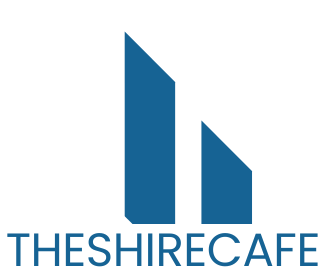Navigating the world of home loans can feel like trying to solve a Rubik’s Cube blindfolded. With so many options and rules, it’s easy to get tangled up. One question that often pops up is whether it’s possible to have two FHA loans at the same time. Spoiler alert: it’s not a straightforward “yes” or “no.”
Table of Contents
ToggleUnderstanding FHA Loans
FHA loans offer unique features that cater to various homebuyers. Understanding their characteristics helps navigate the complexities of home financing.
What Is an FHA Loan?
An FHA loan is a government-backed mortgage designed to make homeownership accessible. These loans require lower down payments, usually at 3.5 percent for borrowers with a credit score of 580 or higher. FHA loans cater to first-time homebuyers, those with limited credit history, or individuals recovering from financial setbacks. They allow for higher debt-to-income ratios, facilitating approvals for many borrowers who might not qualify for conventional loans.
Benefits of FHA Loans
FHA loans provide several advantages that appeal to homebuyers. Lower down payment requirements enable buyers to purchase homes without substantial savings. Flexible credit requirements assist individuals with credit challenges in obtaining financing. These loans often feature competitive interest rates, making homeownership more affordable over time. FHA loans also allow sellers to contribute towards closing costs, further easing the financial burden on buyers. The mortgage insurance premiums remain manageable, benefiting those looking for budget-friendly options.
Can You Have Two FHA Loans?

Owning two FHA loans simultaneously is possible under specific conditions. Understanding these conditions requires examining eligibility criteria and circumstances that justify multiple loans.
Eligibility Criteria
Borrowers may qualify for a second FHA loan if they meet certain conditions. A significant factor involves demonstrating that the existing FHA loan is not tied to an investment property. Maintaining primary residence status is crucial. Furthermore, a borrower must show the ability to afford monthly payments on both loans. Sufficient income and creditworthiness play vital roles in securing approval. Policies may vary by lender, highlighting the importance of consulting financial institutions for tailored advice.
Circumstances for Multiple Loans
Specific situations allow individuals to obtain two FHA loans. Job relocations often require homebuyers to maintain their former residences while acquiring a new primary home. In cases of family growth, purchasing a larger home prompts the need for an additional loan. Additionally, unforeseen circumstances like divorce may lead to new housing requirements. Each scenario demands careful documentation and justification, ensuring compliance with FHA guidelines.
The Process of Obtaining a Second FHA Loan
Obtaining a second FHA loan involves specific steps and documentation. Borrowers must navigate through the application process carefully to meet the requirements set forth by the FHA.
Application Steps
First, verifying eligibility is essential. Borrowers must confirm they meet criteria for a second FHA loan, including maintaining their first loan as a primary residence. Next, discussing options with a lender provides insights into qualifying factors and available loan programs. After that, submitting a formal application is critical. The lender reviews financial situations, credit scores, and current debt obligations. Lastly, waiting for underwriting ensures the application meets all FHA guidelines before approval.
Required Documentation
Supporting documentation plays a vital role in the loan process. Relevant financial records include pay stubs, W-2s, and tax returns from the last two years. Lenders also require a credit report, which assesses creditworthiness. Furthermore, proof of residency shows that the existing FHA loan serves as the primary residence. Additional documentation may encompass bank statements and detail any other assets, clarifying overall financial health. This comprehensive file allows lenders to evaluate the borrower’s ability to manage both loans effectively.
Considerations When Having Two FHA Loans
Navigating the complexities of having two FHA loans requires careful consideration of various factors.
Financial Implications
Managing two FHA loans impacts a borrower’s financial situation significantly. Monthly payments accumulate and can strain finances, especially if unexpected expenses arise. Borrowers must demonstrate sufficient income during the loan application process. The ability to manage existing debts alongside the new loan matters to lenders too. Lenders assess total debt-to-income ratios to ensure borrowers can handle these obligations comfortably. Monthly costs may include property taxes and insurance, adding to the financial picture. Planning ahead and maintaining a robust savings strategy becomes essential for those with dual FHA loans.
Impact on Future Home Purchases
Holding two FHA loans affects future home purchases directly. Lenders evaluate existing debts when assessing a borrower’s capacity for additional financing. Future mortgage applications could face heightened scrutiny because multiple loans signal financial risk. Lower borrowing capacity may result from an increased debt-to-income ratio. Those considering new investments should monitor credit scores closely, as they influence loan terms and interest rates. Changes in financial circumstances and market conditions also play a role in determining eligibility. Understanding these factors helps borrowers make informed decisions about future property investments.
Navigating the world of FHA loans can be challenging but understanding the possibility of holding two simultaneously opens up new avenues for borrowers. With the right circumstances and financial stability it’s feasible to obtain a second FHA loan.
It’s essential for potential borrowers to assess their financial situation and ensure they meet the necessary eligibility criteria. Careful planning and documentation are vital to managing the complexities of multiple loans.
By staying informed and working closely with lenders individuals can make strategic decisions that align with their homeownership goals while maintaining financial health.



